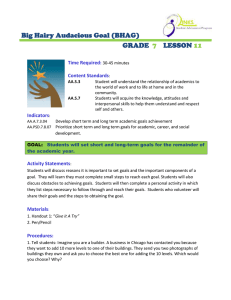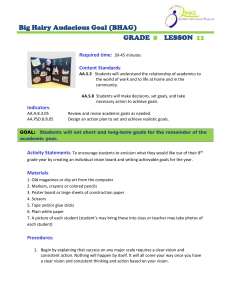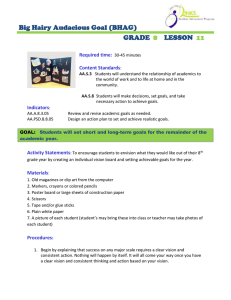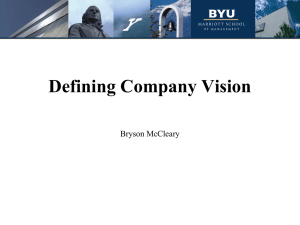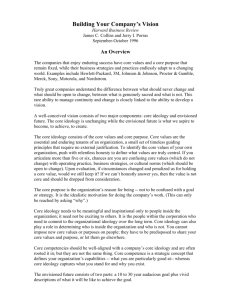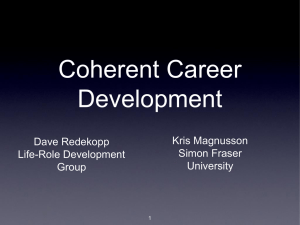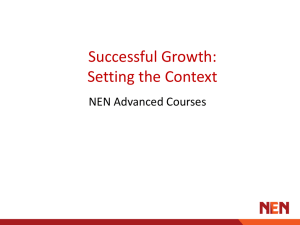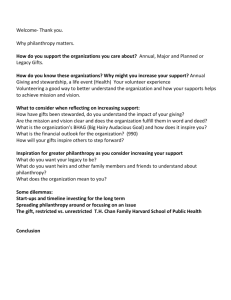Big Hairy Audacious Goal (BHAG) GRADE LESSON
advertisement
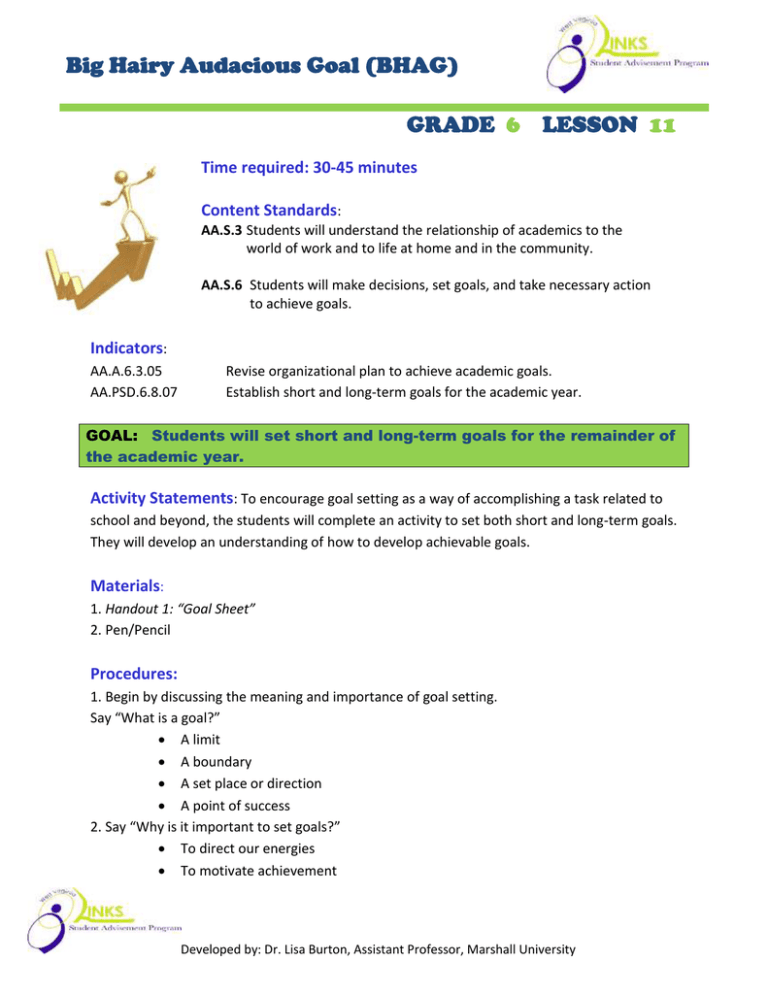
Big Hairy Audacious Goal (BHAG) GRADE 6 LESSON 11 Time required: 30-45 minutes Content Standards: AA.S.3 Students will understand the relationship of academics to the world of work and to life at home and in the community. AA.S.6 Students will make decisions, set goals, and take necessary action to achieve goals. Indicators: AA.A.6.3.05 AA.PSD.6.8.07 Revise organizational plan to achieve academic goals. Establish short and long-term goals for the academic year. GOAL: Students will set short and long-term goals for the remainder of the academic year. Activity Statements: To encourage goal setting as a way of accomplishing a task related to school and beyond, the students will complete an activity to set both short and long-term goals. They will develop an understanding of how to develop achievable goals. Materials: 1. Handout 1: “Goal Sheet” 2. Pen/Pencil Procedures: 1. Begin by discussing the meaning and importance of goal setting. Say “What is a goal?” A limit A boundary A set place or direction A point of success 2. Say “Why is it important to set goals?” To direct our energies To motivate achievement Developed by: Dr. Lisa Burton, Assistant Professor, Marshall University Big Hairy Audacious Goal (BHAG) GRADE 6 LESSON 11 To determine values To provide direction To have something to work for To stay on track To determine what is really important 3. Ask “What are some obstacles that get in the way of achieving our goals?” Bad habits Misperceptions Fears Assumptions Impatience Resistance to change 4. Ask “What is the criteria for a good goal?” It is conceivable – can be put into works It is possible It is controllable – includes others with permission It is measurable – able to know when it was (wasn’t) accomplished It is definite – no “either-or” 5. Indicate that in this session you are going to work on short- and long-range goals or what we like to call “Big Hairy Audacious Goals – BHAG”. 6. Give out Handout 1: “Goal Sheet” and ask students to complete. Have students discuss their goals with the class when completed. Discuss if the goals are controllable, possible, measurable, conceivable, and definite. If not, have students revise as necessary. 7. After students have had ample time to independently develop some goals, ask students to share short-term and long-term goals, discuss barriers and plans to overcome and reach goals. This activity may be done in small groups or as a classroom activity. Discussion: 1. Why is it important to set goals? 2. Are there some famous people you know that might use goal setting to help them? Who are they? Why would they have goals? 3. How does setting goals help you in school? At home? 4. Describe how it feels when you achieve or accomplish a goal? Developed by: Dr. Lisa Burton, Assistant Professor, Marshall University Big Hairy Audacious Goal (BHAG) GRADE 6 LESSON 11 5. If there are obstacles in your way that interfere with achieving your goal, what can you do? 6. What resources can you use to help achieve your goal? Additional Resources: Setting and Keeping Goals www.kidshealth.org Goal Setting for Students http://www.goalsetting4students.com/ Goal Setting http://www.ctqel.org/halifax/goalsetting.html Extension Activities: Students: Ask each student to take their completed “Goal Sheet” home and share it with their parents or guardians. Suggest they keep track of their improvements, analyze the plan frequently, and make changes if the plan is not going well. Advisors: Set a definite time for the report-in on goal achievement. The review will include progress on the goal and resetting goals which were not accomplished. Review the criteria for a good goal. Be sure new goals meet those criteria. Activity: Have students record their intermediate-term goals in the Looking Ahead section of their Portfolio. Developed by: Dr. Lisa Burton, Assistant Professor, Marshall University Big Hairy Audacious Goal (BHAG) GRADE 6 LESSON 11 Resource Adapted from: 102 Tools for Teachers & Counselors Too by Hannaford, Mary. Developed by: Dr. Lisa Burton, Assistant Professor, Marshall University
